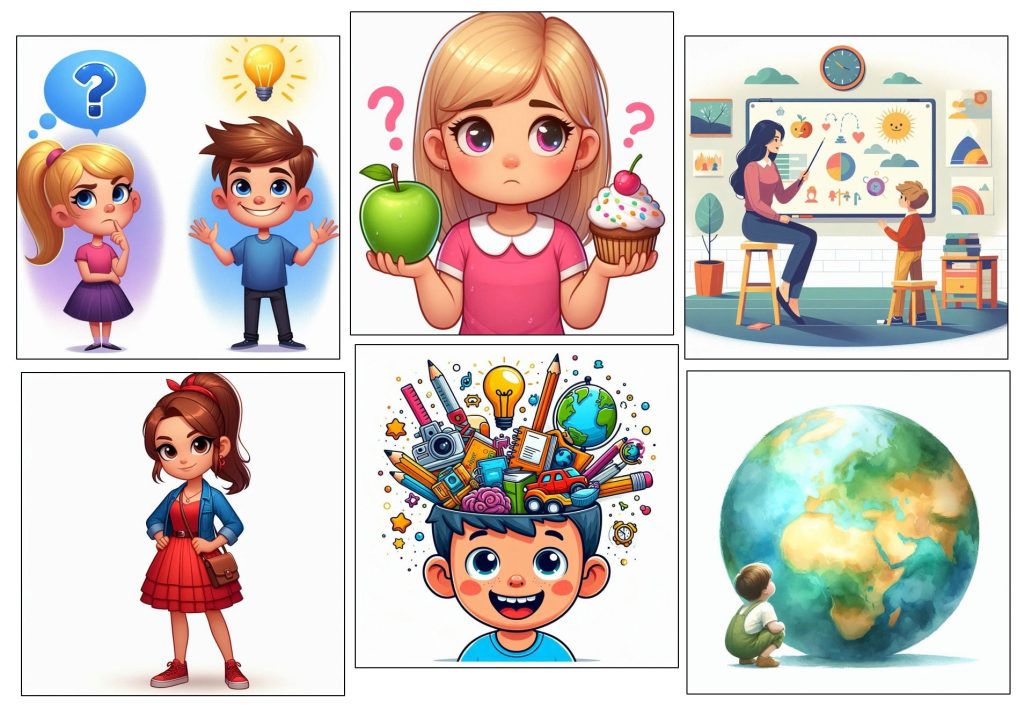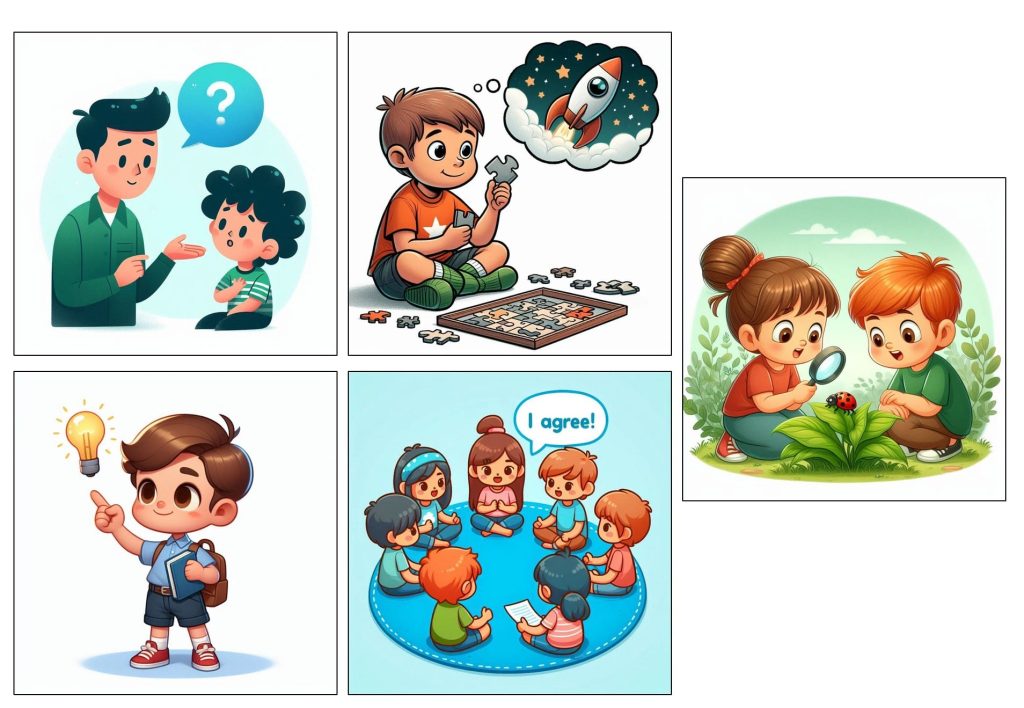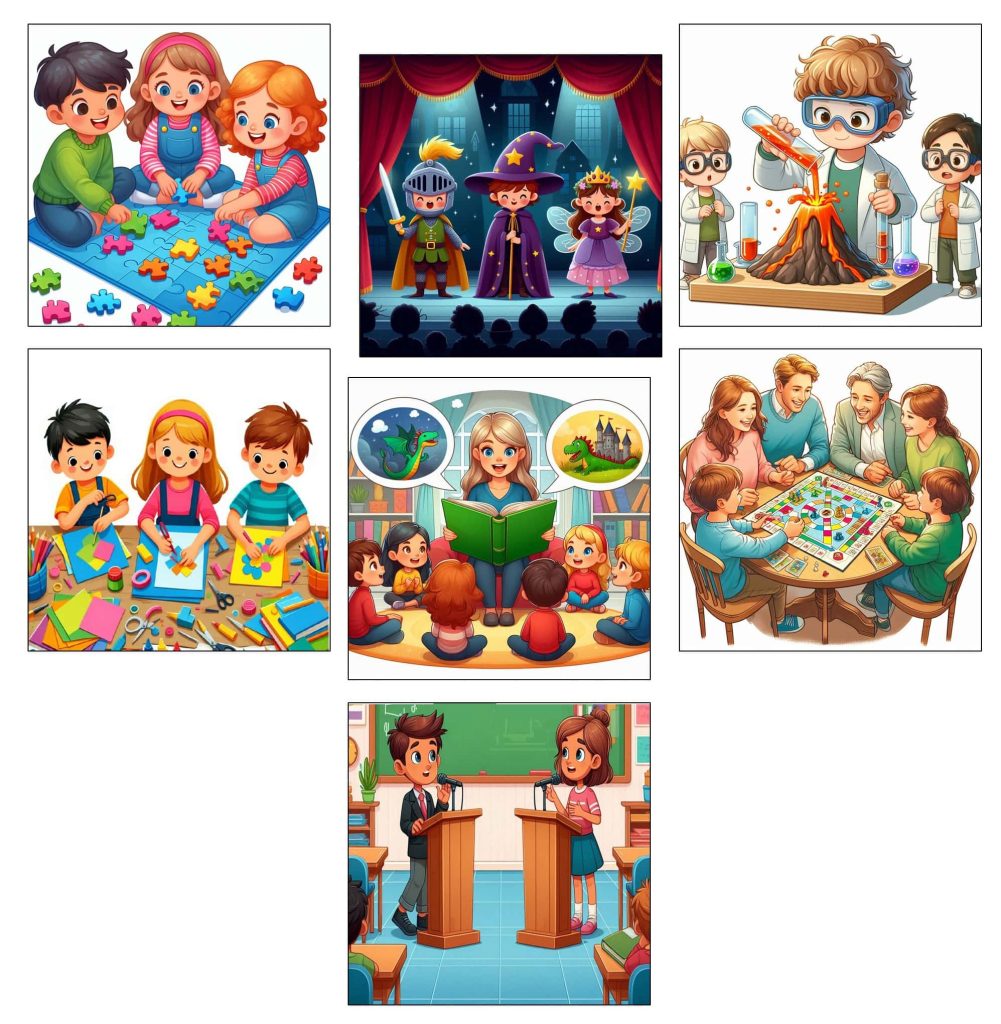The early childhood stage is when children’s mental development happens quickly. Parents and teachers have an important job in helping to promote this growth. This learning page will guide you in improving children’s critical thinking skills. We’ll also talk about fun activities to help kids become confident and creative thinkers for the future.
What is Critical Thinking?
Critical thinking is a cognitive process. Similarly, it is a mandatory knowledge to be developed in children. And also, Critical thinking is careful and clear thinking. Analyzing information, finding information, and producing an interpretation as key components of critical thinking. It means asking questions, understanding problems, and finding good solutions. It helps children make decisions, solve puzzles, and make sense of the world. Teaching children to think critically helps them become independent thinkers who can make smart choices as they grow.

Why is Critical Thinking Important for Children?
Problem-Solving Skills:
Children are given problem-solving skills through critical thinking. For example, let’s look at an opportunity to solve a picture puzzle. In which children first analyze the parts of the given image. Then the children have to find out which pieces of the picture match. At the end, the puzzle is completed and the solution is obtained by correctly attaching the matching picture pieces. It’s also important to double-check to make sure the solution you get is correct.
Better Decision-Making:
Children face various problems in their lives. Critical thinking helps children to make the right decisions in the face of those problems. For example, let’s look at a small problem that children encounter in the playground. When friends play together, the children have to decide which game to play that day. Then the children decide by considering various information. They use data such as popularity, games played the previous day, and the pros and cons of playing that game to analyze their problem.
Understanding the World:
Children are always curious to learn about the world around them. That is why children question adults about many things they see, hear, and read. Children ask different questions until they find a solution to their problem. By analyzing their answers, the children build a solution in their minds. For example, if children have a problem with the color of the rainbow, they try to get a solution by asking about it.
To think independently:
Children have to face problems and make decisions on their own in certain situations. Critical thinking helps children work independently. For example, imagine a moment when children get ready to go to school alone. Then they analyze what tasks they need to do. He tries to find answers to the problems that arise on his own and complete the work.
Evaluation of information:
Children acquire information through various media. Stories, discussions, videos, lessons, poems, songs, and drama are some of those media. Children may have various problems listening, watching, or reading. Later, children try to understand the information they receive. For example, suppose children are reading a story. They read the story and think about whether the story is true and how it could be. Their minds work to find answers to these questions.
Creativity:
Children’s creativity comes from critical thinking. They gather information and choose what is important. Then, they use that information to create new ideas or designs. For example, let’s take an opportunity given to children to tell a story. For example, let’s take an opportunity given to children to tell a story. Then they gather the information they have and creatively tell a story they heard or imagined.
Through the development of critical thinking abilities, parents and teachers support youngsters in becoming thoughtful, confident adults ready to take on the challenges of the future.

Simple Ways Teachers and Parents Can Help Build Critical Thinking Skills in Children:
Ask Open-Ended Questions:
You can ask children questions about something they saw or heard. Don’t limit the questions you ask your child to simple yes or no answers. Ask questions that make children think deeply and answer them. For example, why does it happen? What happens next? etc., direct the children to think deeply and answer your questions.
Encourage Problem-Solving:
Provide opportunities for children to find solutions on their own. For that, plan puzzles, games, assignments, and activities as often as you can. In this way, children will learn how to face and solve real-life challenges.
Support Curiosity:
This means increasing children’s curiosity about the world around them. Children often ask you about their problems. Delay answering them and let them find the answers themselves. Provide them with the means to collect that information. Let the children find the answers to their questions on their own through videos, articles, poems, pictures, or a person, etc.
Promote Decision-Making:
Teach children to make decisions for themselves. Through this, it increases the probability of them making the right decisions about themselves in the future. They can be given opportunities to make independent decisions through the activities of daily life. For example, give opportunities to choose a book to read, choose an outfit to wear, and choose a sport or activity to do. And don’t forget to correct the children for the wrong decisions they make.
Provide Opportunities for Discussion:
Discuss various topics with children. Give more space to their opinions in the discussion. Also, give the children in the class an opportunity to discuss together. Encourage children to share their ideas. Group discussions allow children to see different things from different perspectives. It can improve children’s critical thinking skills.

Events and activities that can be organized to improve critical thinking skills in kids:
Puzzle Solving Day:
You can use one day a month for this. You can use mass puzzles, jigsaw puzzles, brain teasers, or riddles. Give the children time and freedom to think freely and solve these puzzles independently.
Storytelling and “What Happens Next?”
At this time, encourage the children to tell a story of their own making. Otherwise, you start a story. direct the children to build up the rest of the story. This creates new thinking skills in children.
Science Experiments:
Use simple science experiments that can be done at school or at home. Ask the children what happens after the observations before the conclusions. And give children the opportunity to ask questions. Simple activities like making a volcano, creating a rainbow, and planting seeds can be used.
Debate Games:
By organizing these kinds of games, there is a discussion among the children. It is an exchange of ideas. For this, children can get simple topics. For example, is summer better than winter? Let the children have a friendly debate like this. This makes children accustomed to thinking in different ways.
Art and Craft Challenges:
Give the children materials such as glue, scissors, paper, pencils, and colors. Instruct them to make a craft of their choice. Through that, children are led to think. Trying to create something new. At the end of their creation, allow the children to comment on the creation. And don’t forget to appreciate all those creations.
Role-Playing Scenarios:
Give different characters to the children and allow them to play with those characters. Give them different characters like mom, dad, shop owner, farmer, and detective. This is a challenge for children. Children take the information related to that character and act out the character by representing them with dialogues and movements. It is an opportunity to develop children’s critical thinking Skills.
Board Game Night:
Board games are the best way to develop children’s intelligence. Among them, chess and checkers have a special place. Snake and Ladders and Ludo are two other board games that you can use today. This forces children to apply Critical Thinking Skills from the start to the finish of a game.

Each of these activities can make learning fun while building important Critical Thinking Skills in kids!

*** You have the option to download the PDF file from this location.- Download
